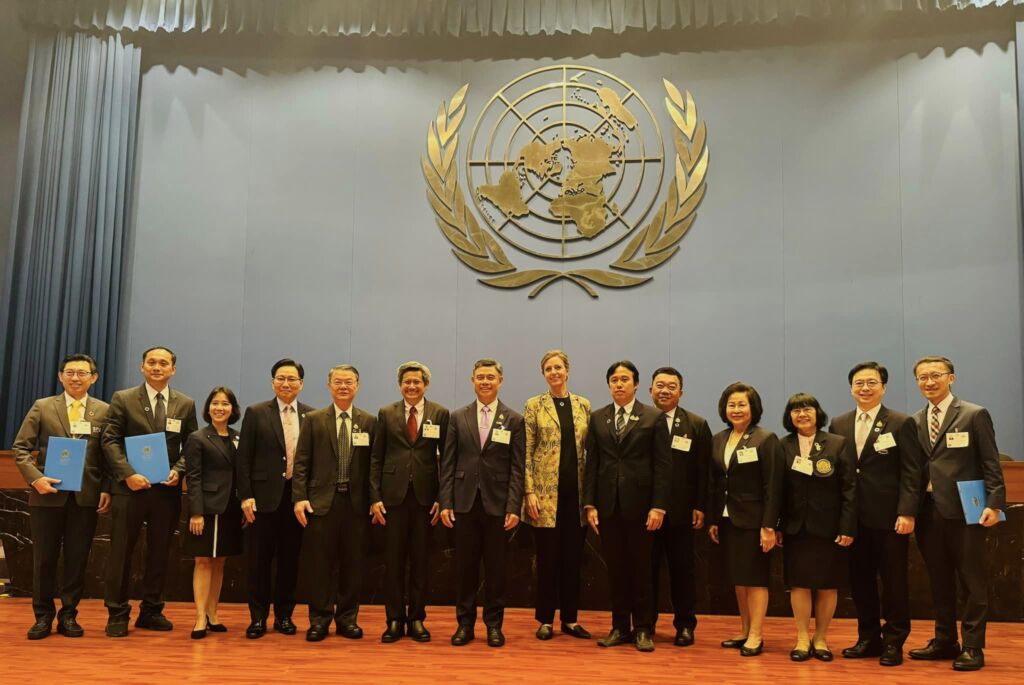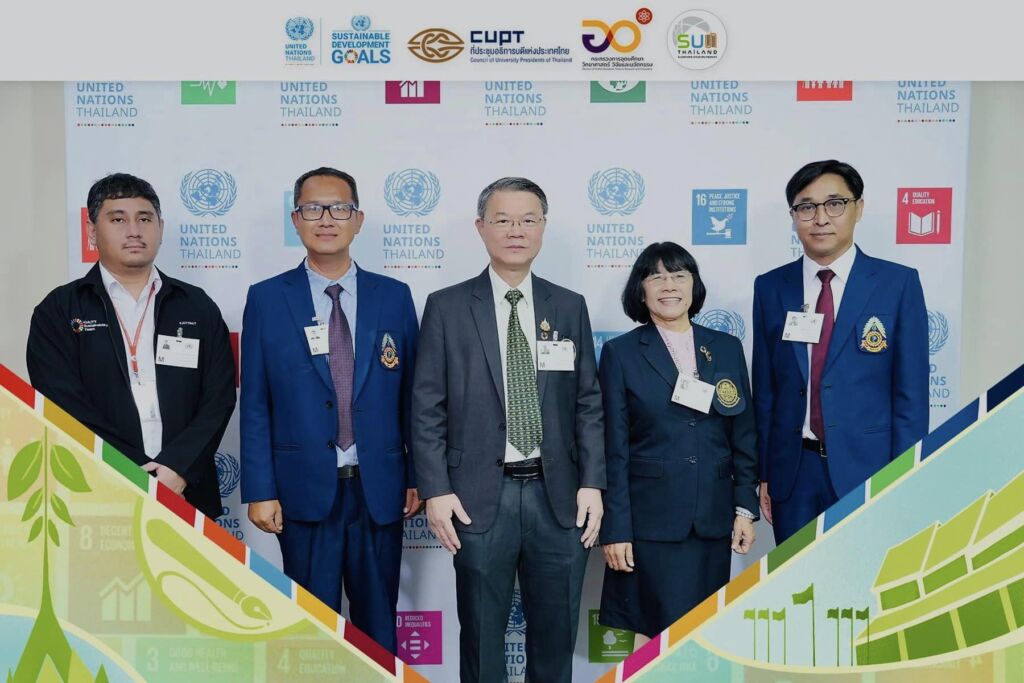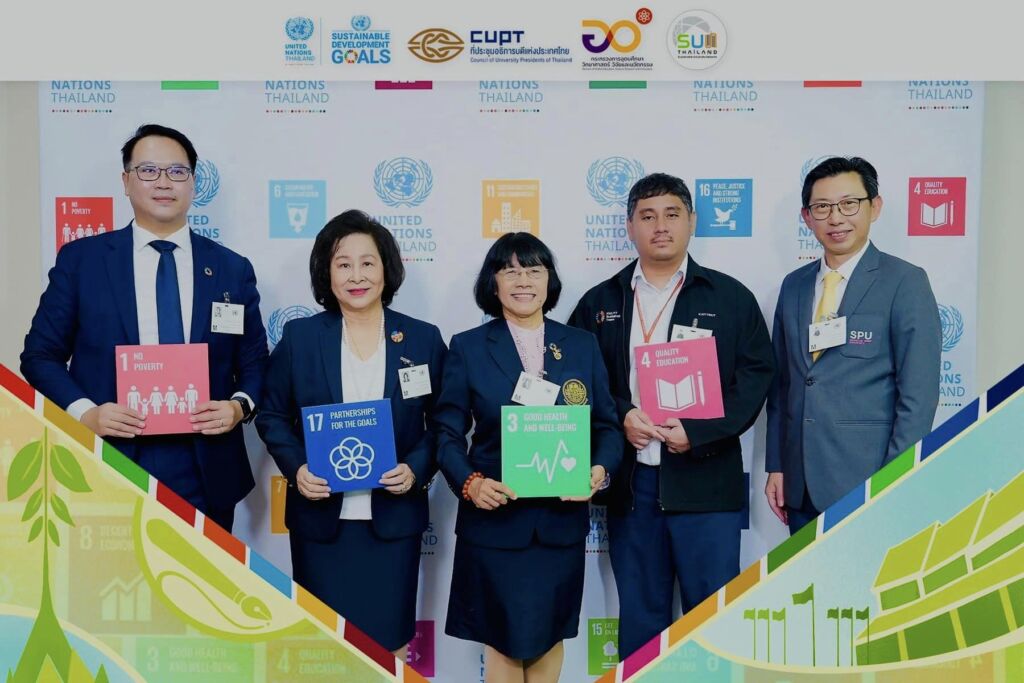On November 13, 2024, King Mongkut’s University of Technology Thonburi (KMUTT), a member of the Sustainable University Network Thailand (SUN Thailand), participated in the Statement of Commitment for Sustainable Development signing ceremony at the United Nations Conference Center in Bangkok.
The event was attended by Asst. Prof. Dr. Prasert Kanthamanon, Senior Vice President for Administrative Affairs, Asst. Prof. Suchada Chaisawadi, Advisor to the EESH Center, and Mr. Kittinat Kaewthong, Acting Director of the EESH Center, representing KMUTT. They joined key representatives from the United Nations in Thailand, along with over 300 university leaders, faculty members, students, and staff from 59 universities across the network.
A Joint Commitment for a Sustainable Future
The Sustainable University Network Thailand (SUN Thailand), under the umbrella of the Council of University Presidents of Thailand (CUPT), organized this ceremony to reaffirm its dedication to achieving the United Nations Sustainable Development Goals (SDGs). The signing reflects the collective intention and determination of all member institutions to:
- Advance sustainable economic, social, and environmental development in Thailand.
- Foster human capital capable of addressing global sustainability challenges.
- Align with policies set by the Ministry of Higher Education, Science, Research, and Innovation.
Highlights of the Event:
The ceremony featured keynote speeches by prominent figures, including:
- Ms. Gita Sabharwal, UN Resident Coordinator in Thailand.
- Prof. Dr. Pongrak Sribanditmongkol, President of CUPT and President of Chiang Mai University.
- Prof. Dr. Supachai Pathumnakul, Permanent Secretary of the Ministry of Higher Education, Science, Research, and Innovation.
- Asst. Prof. Dr. Kritchai Sriboonma, Chair of SUN Thailand.
KMUTT’s Role in the Sustainable Development Movement
As a key player in the SUN Thailand network, KMUTT reaffirms its commitment to fostering innovation, sustainability, and collaboration to drive meaningful changes that address Thailand’s economic, social, and environmental challenges.
This collective effort emphasizes the importance of academic institutions in shaping a sustainable future for current and future generations, ensuring that the country progresses in harmony with global sustainability standards.




